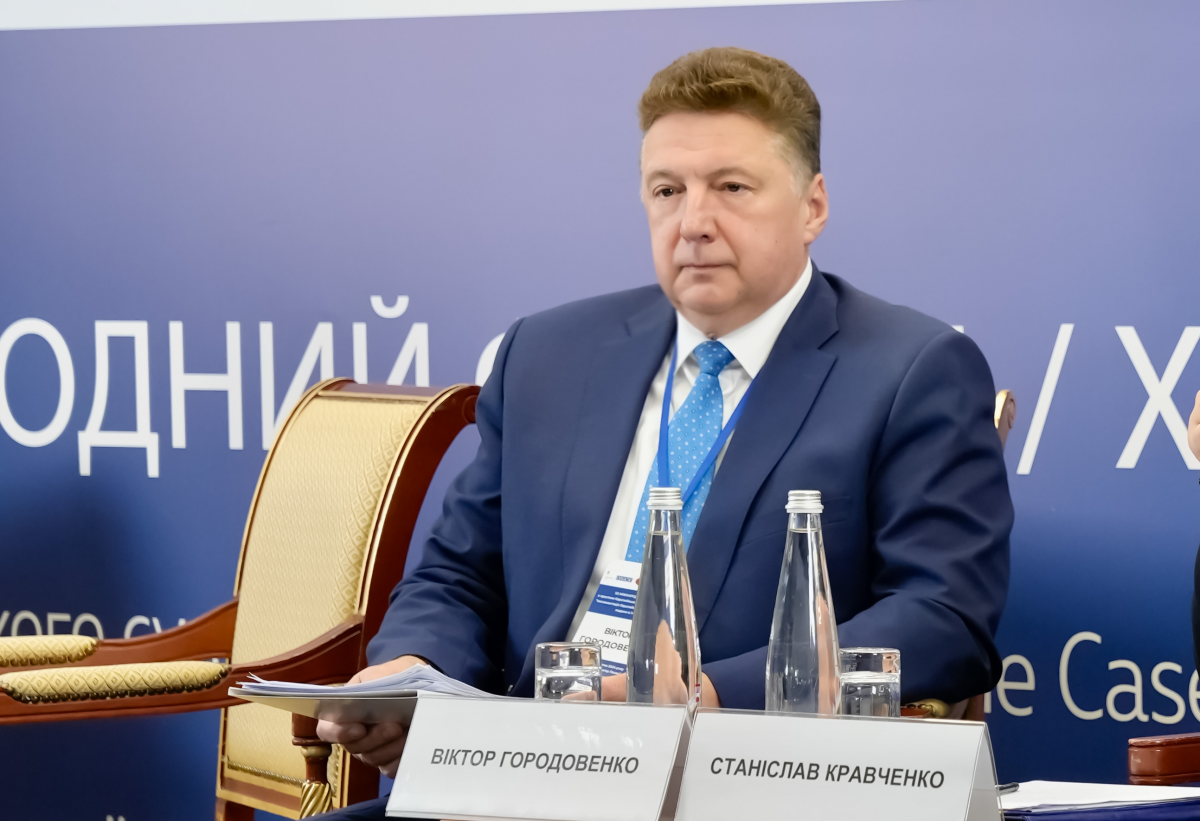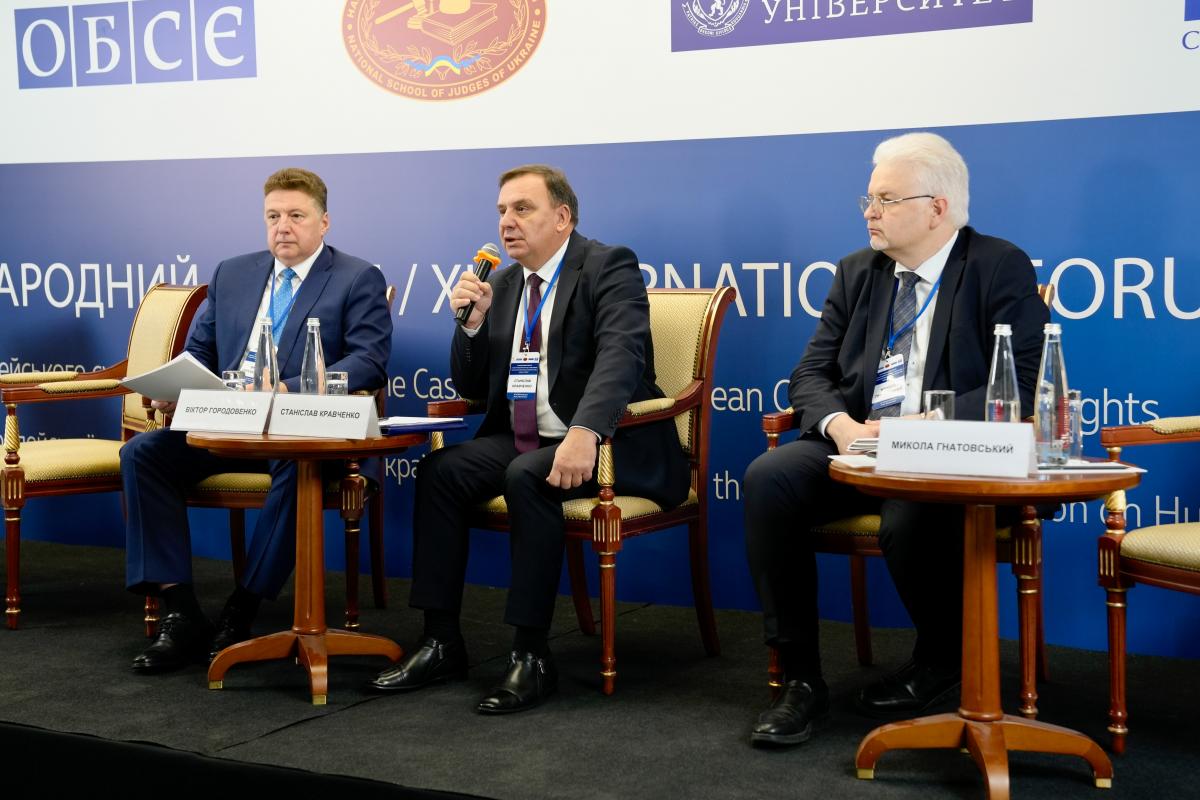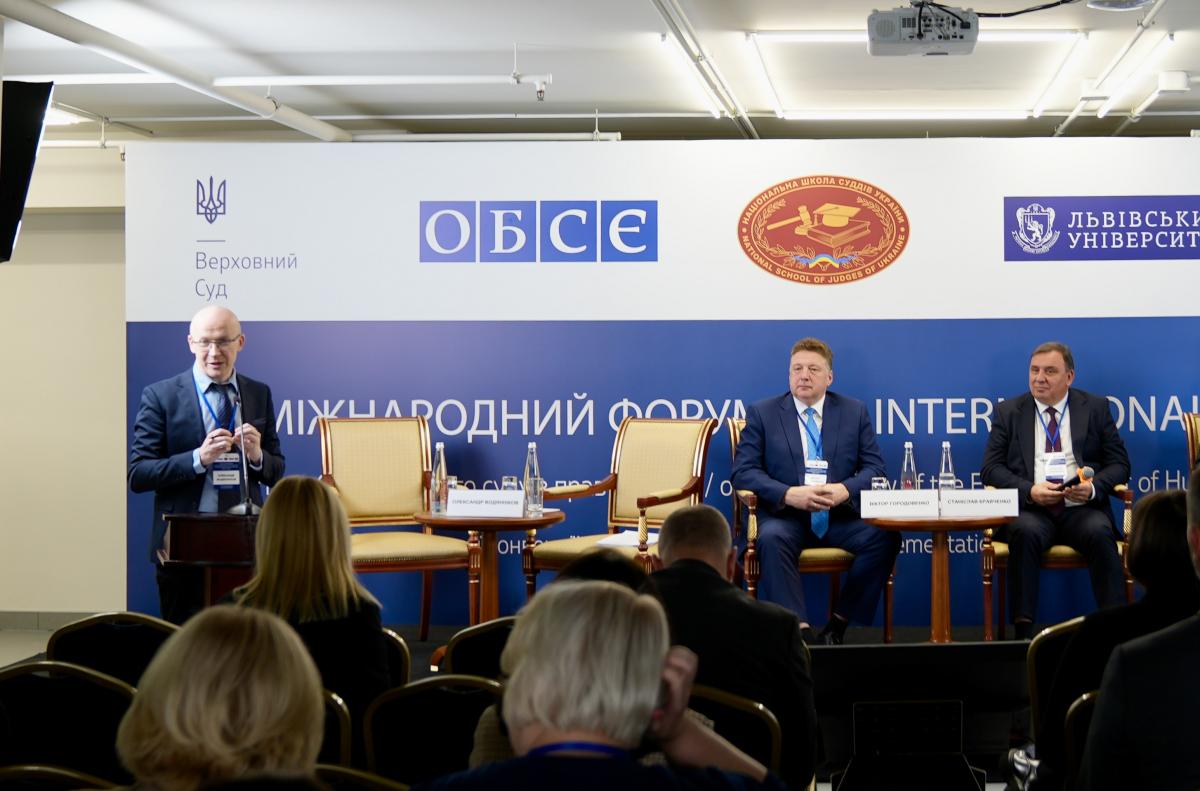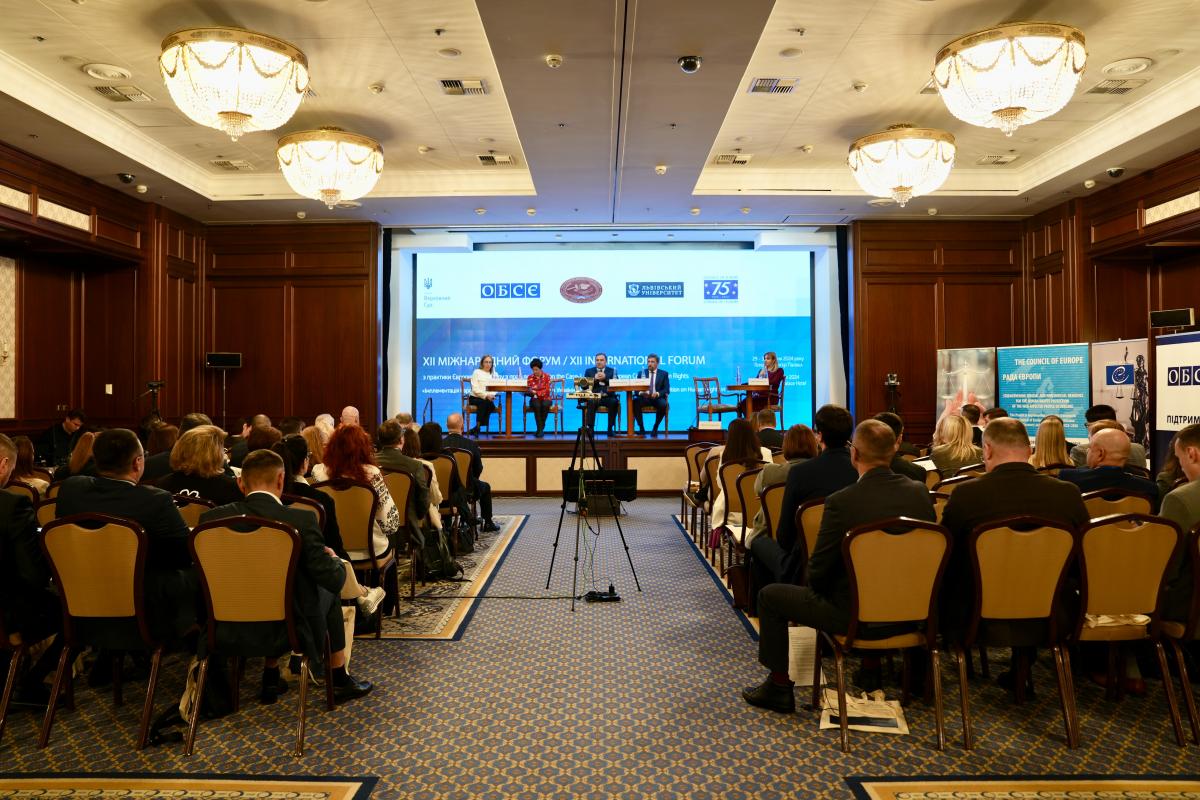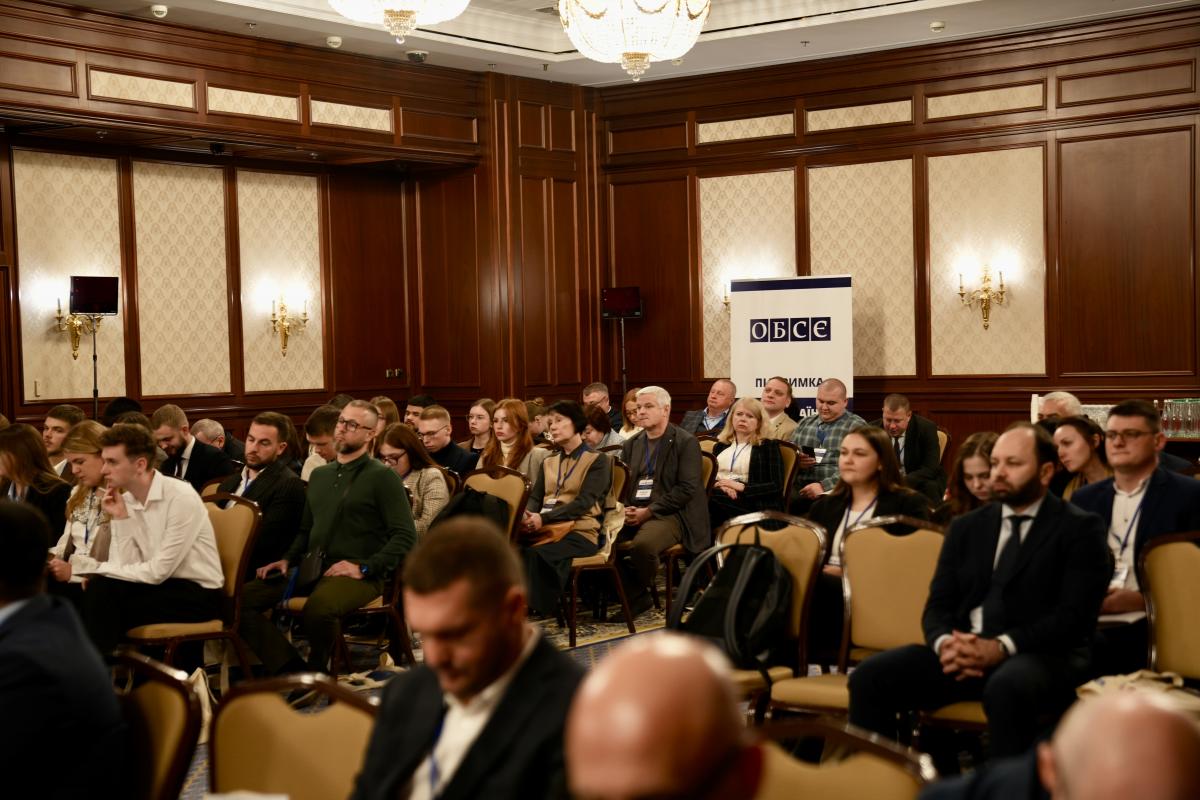On 29-30 October 2024, Kyiv hosted the XII International Forum on the Caselaw of the European Court of Human Rights “Implementation of the European Convention on Human Rights in Ukraine”.
The event, organised by the Supreme Court together with the Ivan Franko National University of Lviv and the National School of Judges of Ukraine in partnership with the OSCE Support Programme for Ukraine and Council of Europe projects, brought together a wide circle of participants, including judges of the Ukrainian judiciary, the European Court of Human Rights, representatives of bodies of state power, non-governmental organisations, academics and international experts.
The main topics of discussion were the implementation of the European Convention on Human Rights in civil and criminal cases; compensation for damage caused by war; application of the Convention in the constitutional proceedings of Ukraine; ECHR case law in the context of miscarriages of justice; gender-sensitive justice in times of war, etc.
As part of the section “Between Strasbourg and Luxembourg: Scylla and Charybdis or two pillars of the European human rights protection system”, Viktor Gorodovenko delivered a presentation on “Modern Challenges of Legal Dialogue between the European Court of Human Rights, the Court of Justice of the European Union (Curia) and National Bodies of Constitutional Jurisdiction”.
The report highlights the key issues and areas of interaction between European and national judicial institutions on the example of the case of the European Court of Human Rights Delta Pekárny a.s. c. République Tchèque, which is an example of current challenges in the dialogue between the European Court of Human Rights and national constitutional courts. The case focuses on the balance between compliance with the standards of the European Convention on Human Rights and respect for national constitutional principles and highlights several issues that arise in this cross-jurisdictional context. The key challenges illustrated in this case relate to the jurisdictional issues of the constitutional authority and the interpretation of national regulations, which showed how the national constitutional court protected the constitutional values of its country.
During the event, the judge emphasised that identity is shaped by historical and cultural factors. This concept is often applied in international law and cooperation to justify the uniqueness of a particular state's legal order. Constitutional identity also plays an important role in the decisions of constitutional courts, especially in situations where sovereign legal principles need to be protected.
Viktor Gorodovenko emphasised that modern challenges to constitutional identity, such as core values, constitutional traditions, and legal features, distinguish the constitutional court of a particular country among other judicial institutions. These principles cover fundamental human rights, the system of separation of powers, the principles of sovereignty and the rule of law, the specifics of the state system and the relationship with international law.
In contrast to this case, the speaker gave an example of the latest case law of the Court of Justice of the European Union (Curia), in particular the Energotehnica case, which has broader implications for constitutional law and national constitutional principles, how corporate and individual duties are reconciled with the constitutional principles of justice, fairness and legal certainty.
The event was also attended by Oksana Zhytnyk, Deputy Head of the Legal Directorate – Head of the Comparative Legal Analysis Department.
The video of Viktor Gorodovenko presentation is available here:
- Broadcast of the first day of the forum:
https://youtube.com/live/qlpkSa2SWbc?feature=share - in Ukrainian
https://youtube.com/live/q4PBLEzmX-w?feature=share - in English
- Broadcast of the second day of the forum:
https://youtube.com/live/XP2ae6LlK04?feature=share - in Ukrainian
https://youtube.com/live/-9WYgro-5Oc?feature=share - in English

